FREE FRIENDS FORUM 17: AUTHORITY/OU—WHO DO YOU OBEY? THE GODS OR YOUR SELF?
The Miracle in the Mirror: Self-Authorized Individuals as Homo voluntaryiens voluntaryiens
LARKEN ROSE ON THE AUTHORITY HALLUCINATION EyeOnFreedom Site, Sept 20, 2018 0:41 “I'm not scared of the Maos and the Stalins and the Hitlers. I'm scared of the thousands of millions of people that hallucinate them to be authority, and so do their bidding, and pay for their empires, and carry out their orders. I don't care if there's one looney with a stupid moustache. He's not a threat if the people do not believe in authority.”
HOW FAR WILL WE GO TO OBEY AUTHORITY @D_Handler “Would you torture a total stranger if ordered to? The Milgram Experiment on obedience to authoritarian figures was a series of psychological experiments conducted by Yale university in the 1960s.”
1 PETER 2:13-17 “Submit yourselves for the Lord’s sake to every human authority: whether to the emperor, as the supreme authority, or to governors, who are sent by him to punish those who do wrong and to commend those who do right. For it is God’s will that by doing good you should silence the ignorant talk of foolish people. Live as free people, but do not use your freedom as a cover-up for evil; live as God’s slaves. Show proper respect to everyone, love the family of believers, fear God, honor the emperor.”
WHO IS THE BIGGEST ENEMY OF HUMANITY Carl Jung “We need more understanding of human nature, Because the only real danger that exists is Man himself. He is the great danger. And we are pitifully unaware of it. We know nothing of man, far too little. His psyche should be studied because we are the origin of all coming evil.”
-------------
JOIN US TO DISCUSS FREE FRIENDS FORUM 17: AUTHORITY/OU—WHO DO YOU OBEY? The Miracle in the Mirror: Self-Authorized Individuals as Homo voluntaryiens voluntaryiens
FREE FRIENDS FORUM -- ABANDONED TO OURSELVES
An Open Forum for Naturalists, Humanists, and Individualists and their Opposites for Argument’s Sake
https://responsiblyfree.substack.com/p/free-friends-abandoned-to-ourselves
--Zoom Saturdays 9PM New Zealand time (for example, this will be Saturdays Australia 7-6PM; China 4PM; Thailand 3PM; Kenya 11AM; Nigeria/France/Spain/Germany 9AM)
--Zoom Sundays 9AM New Zealand time (for example, this will be Saturdays California 12noon; Florida 3PM; Chile 5pm; Nigeria/France/Spain/Germany 9PM)
Personal World Clock tinyurl.com/bdef97z7
USE THE BELOW FOR EVERY MEETING
Jack Carney is inviting you to a scheduled Zoom meeting.
Join Zoom Meeting
https://us06web.zoom.us/j/8245320024
Meeting ID: 824 532 0024
Passcode: 772388
------------------
AUTHORITY noun
1a. power to influence or command thought, opinion, or behavior
the president's authority
b. freedom granted by one in authority : RIGHT
Who gave you the authority to do as you wish?
2a. persons in command
specifically : GOVERNMENT
3a. GROUNDS, WARRANT
had excellent authority for believing the claim
b. convincing force
lent authority to the performance
https://www.merriam-webster.com/dictionary/authority
MORAL adjective
1a. of or relating to principles of right and wrong in behavior : ETHICAL
moral judgments
b. expressing or teaching a conception of right behavior
a moral poem
c. conforming to a standard of right behavior
took a moral position on the issue though it cost him the nomination
d. sanctioned by or operative on one's conscience or ethical judgment
a moral obligation
e. capable of right and wrong action
a moral agent
https://www.merriam-webster.com/dictionary/moral
AUTHORITY (n.) c. 1200, autorite, auctorite "authoritative passage or statement, book or quotation that settles an argument, passage from Scripture," from Old French autorité, auctorité "authority, prestige, right, permission, dignity, gravity; the Scriptures" (12c.; Modern French autorité), from Latin auctoritatem (nominative auctoritas) "invention, advice, opinion, influence, command," from auctor "master, leader, author" (see author (n.)). https://www.etymonline.com/search?q=authority
AUTHOR (n.) mid-14c., auctor, autour, autor "father, creator, one who brings about, one who makes or creates" someone or something, from Old French auctor, acteor "author, originator, creator, instigator" (12c., Modern French auteur) and directly from Latin auctor "promoter, producer, father, progenitor; builder, founder; trustworthy writer, authority; historian; performer, doer; responsible person, teacher," literally "one who causes to grow," agent noun from auctus, past participle of augere "to increase" (from PIE root *aug- (1) "to increase"). https://www.etymonline.com/search?q=author
MORAL (adj.) mid-14c., "associated with or characterized by right behavior," also "associated with or concerning conduct or moral principles" (good or bad), from Old French moral (14c.) and directly from Latin moralis "proper behavior of a person in society," literally "pertaining to manners," coined by Cicero ("De Fato," II.i) to translate Greek ethikos (see ethics) from Latin mos (genitive moris) "one's disposition," in plural, "mores, customs, manners, morals," a word of uncertain origin. Perhaps sharing a PIE root with English mood (n.1). From late 14c. as "of or pertaining to rules of right conduct" (opposed to non-moral, amoral) and "morally good, in accordance with rules of right conduct" (opposed to immoral). Of persons, "habitually conforming to moral rules," 1630s. From 1680s with reference to rights, duties, etc., "founded on morality" (opposed to legal). https://www.etymonline.com/search?q=moral
ETHIC (n.) late 14c., ethik "study of morals," from Old French etique "ethics, moral philosophy" (13c.), from Late Latin ethica, from Greek ēthike philosophia "moral philosophy," fem. of ēthikos "ethical, pertaining to character," from ēthos "moral character," related to ēthos "custom" (see ethos). Meaning "moral principles of a person or group" is attested from 1650s. https://www.etymonline.com/word/ethic
ETHOS (n.) "the 'genius' of a people, characteristic spirit of a time and place," 1851 (Palgrave) from Greek ēthos "habitual character and disposition; moral character; habit, custom; an accustomed place," in plural, "manners," from suffixed form of PIE root *s(w)e- third person pronoun and reflexive (see idiom). https://www.etymonline.com/word/ethos#etymonline_v_11658
IDIOM (n.) 1580s, "form of speech peculiar to a people or place;" meaning "phrase or expression peculiar to a language" is from 1620s; from French idiome (16c.) and directly from Late Latin idioma "a peculiarity in language," from Greek idioma "peculiarity, peculiar phraseology" (Fowler writes that "A manifestation of the peculiar" is "the closest possible translation of the Greek word"), from idioumai "to appropriate to oneself," from idios "personal, private," properly "particular to oneself." https://www.etymonline.com/word/idiom
IDIOT (n.) early 14c., "person so mentally deficient as to be incapable of ordinary reasoning;" also in Middle English "simple man, uneducated person, layman" (late 14c.), from Old French idiote "uneducated or ignorant person" (12c.), from Latin idiota "ordinary person, layman; outsider," in Late Latin "uneducated or ignorant person," from Greek idiotes "layman, person lacking professional skill" (opposed to writer, soldier, skilled workman), literally "private person" (as opposed to one taking part in public affairs), used patronizingly for "ignorant person," from idios "one's own" (see idiom). https://www.etymonline.com/search?q=idiot
INDEPENDENT (adj.) 1610s, "not dependent on something else," from in- (1) "not, opposite of" + dependent. It is attested from 1670s as "one who acts according to his own will" and 1808 in the specific sense "person not acting as part of a political party." https://www.etymonline.com/search?q=independent
DEPENDENT (adj.) also dependant, late 14c., "relying for existence on;" from de "from, down" (see de-) + pendere "to hang, cause to hang; weigh" (from PIE root *(s)pen- "to draw, stretch, spin") https://www.etymonline.com/search?q=dependent
*(S)PEN- Proto-Indo-European root meaning "to draw, stretch, spin." https://www.etymonline.com/word/*%28s%29pen-
INDIVIDUAL (adj.) early 15c., "one and indivisible, inseparable" (with reference to the Trinity), from Medieval Latin individualis, from Latin individuus "indivisible," from in- "not, opposite of" (see in- (1)) + dividuus "divisible," from dividere "divide" (see divide (v.)). Original sense now obsolete; the word was not common before c. 1600 and the 15c. example might be an outlier. Sense of "single, separate, of but one person or thing" is from 1610s; meaning "intended for one person" is from 1889. https://www.etymonline.com/search?q=individual
MIRROR (n.) mid-13c., mirour, "polished surface (of metal, coated glass, etc.) used to reflect images of objects," especially the face of a person, from Old French mireoir "a reflecting glass, looking glass; observation, model, example," earlier miradoir (11c.), from mirer "look at" (oneself in a mirror), "observe, watch, contemplate," from Vulgar Latin *mirare "to look at," variant of Latin mirari "to wonder at, admire" (see miracle). https://www.etymonline.com/search?q=mirror
MIRACLE (n.) mid-12c., "a wondrous work of God," from Old French miracle (11c.) "miracle, story of a miracle, miracle play," from Latin miraculum "object of wonder" (in Church Latin, "marvelous event caused by God"), from mirari "to wonder at, marvel, be astonished," figuratively "to regard, esteem," from mirus "wonderful, astonishing, amazing," earlier *smeiros, from PIE *smei- "to smile, laugh" (source also of Sanskrit smerah "smiling," Greek meidan "to smile," Old Church Slavonic smejo "to laugh;" see smile https://www.etymonline.com/word/miracle
SMILE (v.) c. 1300, smilen, "assume a facial expression or change of features indicative of amusement and pleasure," perhaps from Middle Low German *smilen (compare Middle High German smielen) or a Scandinavian source (such as Danish smile "smile," Swedish smila "smile, smirk, simper, fawn"), from Proto-Germanic *smil-, extended form of PIE root *smei- "to laugh, smile" (source also of Sanskrit smayate "smiles;" Latvian smiêt "to laugh;" Latin mirus "wonderful," mirari "to wonder;" Old English smerian "to laugh at, scorn," Old High German smieron "to smile"). https://www.etymonline.com/search?q=smile
---------------
MICHAEL JACKSON - MAN IN THE MIRROR (OFFICIAL VIDEO) Michael Jackson, Oct 3, 2009 5:03
----------------------------
WHAT IS AUTHORITY? Philo-notes, March 12, 2023. 2:26
Transcript https://philonotes.com/2023/03/what-is-authority
----------------------------
CONFORMITY, COMPLIANCE, AND OBEDIENCE Pressbooks
Summary
The power of the situation can lead people to conform, or go along with the group, even in the face of inaccurate information. Conformity to group norms is driven by two motivations, the desire to fit in and be liked and the desire to be accurate and gain information from the group. Authority figures also have influence over our behaviors, and many people become obedient and follow orders even if the orders are contrary to their personal values. Conformity to group pressures can also result in groupthink, or the faulty decision-making process that results from cohesive group members trying to maintain group harmony. Group situations can improve human behavior through facilitating performance on easy tasks, but inhibiting performance on difficult tasks. The presence of others can also lead to social loafing when individual efforts cannot be evaluated.
https://opentext.wsu.edu/psych105nusbaum/chapter/conformity-compliance-and-obedience/
------------
Jack’s PARENT EFFECTIVENESS TRAINING NEW ZEALAND website:
https://parenteffectivenesstrainingnewzealand.com
DR. THOMAS GORDON ON PUNISHMENT, POWER AND PARENTING ParentEffectivenessTraining, June 14, 2017. 1:09
DR. THOMAS GORDON ON PARENT EFFECTIVENESS TRAINING - A SHIFT AWAY FROM POWER AND CONTROL ParentEffectivenessTraining, June 14, 2017. 1:09
THE 4 KINDS OF AUTHORITY BY THOMAS GORDON
Another source of semantic confusion comes from the term authority. Everybody who writes about discipline uses this word, but few authors recognize the existence of the various meanings the term has. First, there is the authority derived from a person's special expertise: "He is an authority on corporate law," "He speaks with authority." This is often referred to as earned authority. I've adopted the convention of labeling it Authority "E" - for expertise.
Second, there is the authority derived from the job (or role) a person occupies in life. Airline pilots ask passengers to fasten seat belts, and they usually comply;; a committee chairperson is given the authority to open and close its meetings and to guide and direct what goes on in between. I've termed this kind of authority Authority "J" - for job.
A third kind of authority is derived from understandings, agreements, rules and contracts people make in their relationships with others. I agree to drive my daughter to the auto repair shop;; in our family we have an understanding (policy) that we knock before entering another's bedroom;; we have agreements as to who does each and every one of many jobs in our house. I call this Authority "C" - for contract.
Finally, there is the authority derived from possessing power over another-power to control, dominate, coerce, bend one's will, and so on. Call this Authority "P" - for power. This type of authority is what people mean when they talk about "obedience to authority," "exercising your authority," "a breakdown of authority," "rebelling against authority." Understandably, it is the authority many teachers believe they need to discipline (control) children at school.
I found countless examples of cloudy thinking due to failure to recognize the difference among these four kinds of authority. Most frequent was the common assertion that teachers or parents are justified in using their authority (Authority "P") to discipline youngsters because kids need and want the adult's superior wisdom and knowledge. Wisdom and knowledge obviously are Authority "E," not Authority "P." Another common rationalization I often found in the dare-to-discipline books is that power-based authority (Authority "P") is justified because the word discipline was derived from the root word disciple, meaning a learner. A perceptive reader would see through this deception, recognizing that you use Authority "E" to teach and instruct disciples, not Authority "P."
I also discovered that dare-to-discipline advocates try to make using Authority "P" sound less authoritarian and coercive than it is by using euphemisms for this type of authority. These are nice-sounding terms interchangeable with authority-such as the "leadership" of teachers and parents, "benign" authority, the "loving leadership" of one's parents, "guidance," or "being authoritative."
Even when using the Bible to justify adults' punishing children (Authority "P"), James Dobson, perhaps the most widely known dare- to-discipline advocate, confuses two kinds of authority. He first cites this scriptural admonition, "Children obey your parents in all things, for this is well-pleasing unto the Lord." Then he cites another passage (Ephesians 6:4) to further justify parents using authority, but this second scriptural definition of discipline involves giving children suggestions and advice, which is clearly Authority "E".
"Suggestions and godly advice," as I see it, are ways of instructing or teaching (Authority "E") and not demanding obedience (Authority "P"). One might assume, as I did, that dare-to- discipline defenders at some deeper level actually disapprove of disciplining children. Why else would they need to use so many euphemisms and Biblical passages to justify using their power? And one might guess that many disciplinarians feel guilty about using their power over persons smaller than they are ("This hurts me worse than it does you").
MORE FROM THOMAS GORDON PARENT EFFECTIVENESS TRAINING (PET)
DON’T CHILDREN WANT AUTHORITY AND LIMITS? Gordon Training International
https://www.gordontraining.com/parenting/dont-children-want-authority-and-limits/
BEING AUTHORITATIVE DOES NOT EQUAL BEING AUTHORITARIAN Gordon Training International
THE FOUR KINDS OF AUTHORITY Gordon Training International
https://www.gordontraining.com/free-parenting-articles/the-four-kinds-of-authority/
THE MYTH OF BENEVOLENT AUTHORITY Gordon Training International
https://www.gordontraining.com/free-parenting-articles/the-myth-of-benevolent-authority/
-----------
IS AUTHORITY LEGITIMATE? AND DO PEOPLE HAVE THE RIGHT TO RULE? RealEyesation, March 25, 2022 12:01
CHAT GPT SUMMARY
Questioning Authority's Legitimacy: The speaker challenges the legitimacy of authority, questioning whether anyone truly has the right to rule over others and impose their will.
Equality and Rights: Emphasizes that all human beings are equal, with the same rights, and no one has the inherent right to dictate how others should live their lives.
Coercion and Violence: Argues that authority often relies on coercion and violence to enforce its rules, equating this dynamic with slavery, where compliance is achieved through the threat of harm.
False Freedom: Suggests that the perception of freedom under authority is misleading, as people are only "free" within the confines set by those in power, leading to a gradual erosion of true freedom.
Need for Self-Leadership: Advocates for personal responsibility and self-leadership instead of reliance on external authority figures, proposing that true freedom and peaceful coexistence can only be achieved when individuals take responsibility for their own lives.
-------------
LARKEN ROSE ON THE BELIEF IN AUTHORITY Bevin Chu, Aug 6, 2013. 4:23
The full transcript included.
Larken 3:08 “The belief that we are obligated to obey it [Government] because it's authority -- "It has the right to rule, we have the obligation to obey." That belief is a lie. And that belief is the entire problem. And when that belief is gone, and sooner or later it will be, when that belief is gone, you don't have to do anything. You don't have to abolish it. You don't have to vote it out. You don't have to have a revolution. The people simply ignore it. and we could because we outnumber it and we outgun it by a huge margin.”
CHAT GPT SUMMARY
Core Issue: The problem isn't with the government as an entity but with people's belief in its legitimacy and authority.
Comparison with Mafia: Unlike the Mafia, which is widely recognized as illegitimate, government is mistakenly seen as having a rightful authority to impose taxes, enforce laws, and conduct national defense.
Government’s Power: The government’s power to enforce control relies on convincing people that it has the right to do things ordinary individuals cannot, such as initiate violence.
Belief vs. Reality: If people stopped believing in the legitimacy of the government, they could effectively neutralize its power, as the government relies on the belief of its authority to operate.
Ineffectiveness of Revolutions: Revolutions fail to solve the problem because they don't address the root issue—the belief in authority. Without changing this belief, new forms of government will simply replace old ones, continuing the cycle of oppression.
-----------
THE BICAMERAL MIND | EVOLUTION OF CONSCIOUSNESS | JULIAN JAYNES | WESTWORLD geistreiches, May 1, 2018. 3:27
THE ORIGIN OF CONSCIOUSNESS IN THE BREAKDOWN OF THE BICAMERAL MIND Essens Book Summaries, March 23, 2024. 5:58
NEUROSCIENCE, SPIRITUALITY, AND PERCEPTION: THE GOD HELMET Artificially Aware, June 11, 2024. 10:14
THE BREAKDOWN OF CONSCIOUSNESS AND THE RISE OF SELF AWARENESS: BICAMERAL MENTALITY Artificially Aware, June 10, 2024. 10:25
HOW THE BICAMERAL MIND EXPLAINS THE ORIGINS OF RELIGION Nexus Void, Aug 10, 2024. 13:41
SELECTED QUOTES FROM “THE ORIGIN OF CONSCIOUSNESS IN THE BREAKDOWN OF THE BICAMERAL MIND” BY JULIAN JAYNES
CH 6—THE ORIGIN OF CIVILIZATION P.126
The bicameral mind is a form of social control and it is that form of social control which allowed mankind to move from small hunter-gatherer groups to large agricultural communities. The bicameral mind with its controlling gods was evolved as a final stage of the evolution of language. And in this development lies the origin of civilization.
CH 15—THE QUEST FOR AUTHORIZATION P.317
p.317
We, at the end of the second millennium A.D., are still in a sense deep in this transition to a new mentality. And all about us lie the remnants of our recent bicameral past. We have our houses of gods which record our births, define us, marry us, and bury us, receive our confessions and intercede with the gods to forgive us our trespasses. Our laws are based upon values which without their divine (DE?)pa(e?)ndency (sic) would be empty and unenforceable. Our national mottoes and hymns of state are usually divine invocations. Our kings, presidents, judges, and officers begin their tenures with oaths to the now silent deities taken upon the writings of those who have last heard them.
The most obvious and important carry-over from the previous mentality is thus our religious heritage in all its labyrinthine beauty and variety of forms.
p.319
I am thinking too of our struggles toward systems of ethics, of attempting with rational consciousness to find substitutes for our previous divine volition which could carry with them that obligation which at least could simulate our earlier obedience to hallucinated voices. And too of the cyclic history of politics, the gyres of our wavering attempts to make governments out of men instead of gods, secular systems of laws to perform that formerly divine function of binding us together into an order, a stability, and a commonweal.
p.320
But living also in these forms is a fervent search for what I shall call archaic authorization. After the collapse of the bicameral mind, the world is still in a sense governed by gods, by statements and laws and prescriptions carved on stelae or written on papyrus or remembered by old men, and dating back to bi-cameral times. But the dissonance is there. Why are the gods no longer heard and seen? The Psalms cry out for answers. And more assurances are needed than the relics of history or the paid insistences of priests. Something palpable, something direct, something immediate! Some sensible assurance that we are not alone, that the gods are just silent, not dead, that behind all this hesitant subjective groping about for signs of certainty, there is a certainty to be had.
P.319
“I am thinking too of our struggles toward systems of ethics, of attempting with rational consciousness to find substitutes for our previous divine volition which could carry with them that obligation which at least could simulate our earlier obedience to hallucinated voices. And too of the cyclic history of politics, the gyres of our wavering attempts to make governments out of men instead of gods, secular systems of laws to perform that formerly divine function of binding us together into an order, a stability, and a commonweal.”
P.324
the archaic authorization to which the trance is directed or related to, usually a god, but sometimes a person who is accepted by the individual and his culture as an authority over the individual, and who by the collective cognitive imperative is prescribed to be responsible for controlling the trance state.”
p.398,399
“Another that hypnosis is a regression to a childlike relation to a parent. And indeed this is often how any vestige of the bicameral mind appears, since the bicameral mind itself is based on such admonitory experience.
p.401,402,403
The full consciousness of the waking state seems itself like a huge wilderness of distracting closenesses that cannot easily be crossed to catch into such immediate control.
What is it then that hypnosis supplies that does this extraordinary enabling, that allows us to do things we cannot ordinarily do except with great difficulty? Or is it ‘we’ that do them? Indeed, in hypnosis it is as if someone else were doing things through us. And why is this so? And why is this easier? Is it that we have to lose our conscious selves to gain such control, which cannot then be by us?
On another level, why is it that in our daily lives we cannot get up above ourselves to authorize ourselves into being what we really wish to be? If under hypnosis we can be changed in identity and action, why not in and by ourselves so that behavior flows from decision with as absolute a connection, so that whatever in us it is that we refer to as will stands master and captain over action with as sovereign a hand as the operator over a subject?
The answer here is partly in the limitations of our learned consciousness in this present millennium. We need some vestige of the bicameral mind, our former method of control, to help us. With consciousness we have given up those simpler more absolute methods of control of behavior which characterized the bicameral mind. We live in a buzzing cloud of whys and wherefores, the purposes and reasonings of our narratizations, the many-routed adventures of our analog ‘I’s. And this constant spinning out of possibilities is precisely what is necessary to save us from behavior of too impulsive a sort. The analog ‘I’ and the metaphor ‘me’ are always resting at the confluence of many collective cognitive imperatives. We know too much to command ourselves very far.
“We sometimes think, and even like to think, that the two greatest exertions that have influenced mankind, religion and science, have always been historical enemies, intriguing us in opposite directions. But this effort at special identity is loudly false. It is not religion but the church and science that were hostile to each other. And it was rivalry, not contravention. Both were religious. They were two giants fuming at each other over the same ground. Both proclaimed to be the only way to divine revelation.
P.438
“It said in a word that there is no authorization from outside. Behold! There is nothing there. What we must do must come from ourselves. The king at Eynan can stop staring at Mount Hermon; the dead king can die at last. WE, WE FRAGILE HUMAN SPECIES AT THE END OF THE SECOND MILLENNIUM A.D., WE MUST BECOME OUR OWN AUTHORIZATION [my emphasis]. And here at the end of the second millennium and about to enter the third, we are surrounded with this problem. It is one that the new millennium will be working out, perhaps slowly, perhaps swiftly, perhaps even with some further changes in our mentality. The erosion of the religious view of man in these last years of the second millennium is still a part of the breakdown of the bicameral mind.” Julian Jaynes
------------------
---------------------------------
EXTRAS
THE NEED FOR DOMINATION IN PSYCHOPATHIC LEADERSHIP: A CLARIFICATION FOR THE ESTIMATED HIGH PREVALENCE OF PSYCHOPATHIC LEADERS Science Direct, 2021
Abstract
In this article we hypothesize that psychopathic leaders may be attracted to positions of power because in such environments they can fulfill their need for domination and control over other people. Although social dominance is a well-established trait in psychopathy, social dominance as a motivational factor in those high in psychopathy has received surprisingly little attention in literature and research. In this article we propose that social dominance and dominance motivation may be part of the psychological profile of certain psychopathic subtypes, but not of others. Furthermore, the scarce theory and research on psychopathy and dominance motivation is reviewed. Finally, we will additionally analyze research on the different motivations between the larger group of the Dark Triad and propose new insights on the importance of the need for domination for those high in psychopathy in comparison to other fundamental life motivations. Based on these analyses we propose a clarification for the (estimated) high prevalence of psychopathic individuals in leadership positions.
https://www.sciencedirect.com/science/article/pii/S135917892100104X
PUTTING THE ONUS ON AUTHORITY: A REVIEW OF OBEDIENT BEHAVIOR AND WHY WE SHOULD MOVE ON Michelle Meyer
ABSTRACT
The obedience to authority domain arose in psychological research between the 1950s–1960s as a combination of interest in obedience, conformity, and compliance that expanded after Milgram’s shock experiments. Each of these components compared different forms of submissive behavior as a response to authority and social pres- sure, but over the past fifty years the domain has merged these three components and become more centered around the shock of submissive behavior than the authority that causes it. As a result, many modern in- vestigations use inconsistent understandings of these constructs and often leave out manipulation of the second half of the paradigm – authority. If we reintroduce the distinctions for each form of submissive behavior, we can notice patterns of how each is related to differences in authority and the systemic benefits of studying the nu- ances of authoritative systems. Understanding the impact of power dynamics on submissive behavior and what truly separates obedience from conformity and compliance not only allows for a more dualistic approach to this discipline, but allows the authority domain to provide insight into other domains such as education, workplace behavior, and conformity to mass media.
https://sci-hub.se/10.1016/j.newideapsych.2020.100831
WHY ENTITLED PEOPLE WILL DISREGARD RULES THAT OTHERS FOLLOW Psychology Today, Douglas laBier, January 24, 2018
According to research, the answer may lie in how they define what is fair.
Now this is interesting—especially in today's culture: A new study has found that some people, who see themselves as special or entitled in some way that others are not, are more likely to disregard ordinary instructions or the usual “order” of things, which most others will accept and follow. Researchers who explored this topic found that the underlying reason is a narcisstic outlook about how the world should work for them.
OBEYING AUTHORITY: SHOULD WE TRUST THEM OR NOT? Daniel Walker, National Library of Medicine, 2023
ABSTRACT
Researchers claim impartiality when conducting research and suggest their motives are to improve knowledge. However, when investigating the history of research into obedience to authority, propaganda and power-knowledge are present as well as emotional ties that affect the motives and methods of investigating these areas. With published work from US President Woodrow Wilson proposing obeying authority is necessary to functional societies and the Vatican displaying power-knowledge when censoring heliocentric views, it seems some researchers have ulterior motives. Although researchers like Piaget and Milgram appear to be more integral researchers, Piaget like many utilised observational methods that lack replicability, and Milgram’s family history with the events of the Holocaust pose additional issues. Therefore, considering the General Demarcation Problem, it is difficult to distinguish between science and pseudoscience, given all researchers will consider the research they conduct in the present day to be the correct way of doing so. However, adopting a critical mind as to who is conducting the research and the wider implications of who it serves and who it does not serve, would be beneficial for academia and wider society. This comes in a time where many reject the science of critical world issues such as COVID-19 and climate change.
https://www.ncbi.nlm.nih.gov/pmc/articles/PMC9023254/
THINK (SONG WITH VIDEO) Larken Rose, Feb 28, 2013 5:09
GODS AUTHORITY Biblical Quotes
https://www.openbible.info/topics/gods_authority
LEARN WHY SUBMITTING TO AUTHORITY IS IMPORTANT | IN 5 MINUTES In 5 Minutes, Aug 4, 2020. 6:03
APPEAL TO AUTHORITY - EXAMPLES AND DEFINITION Logical Fallacy
https://www.logical-fallacy.com/articles/appeal-to-authority/
WHAT ANARCHY ISN’T Archive Free Download Audio and PDF
https://archive.org/details/WHATANARCHYISNTByLarkenRose38
https://ia800900.us.archive.org/5/items/WHATANARCHYISNTByLarkenRose38/WhatAnarchyIsnt-PDF.pdf
WHAT ANARCHY ISN’T LARKEN ROSE How I Found Freedom in an Unfree World, June 10, 2020. 27:47
LARKEN ROSE - THE EVIL OF AUTHORITY James Koss, Dec 19, 2014. 3:00
Larken Rose, summarizing his side of a debate about why [external] Authority is illogical, evil, and should always be denied.
LARKEN ROSE on ANARCHO-CAPITALISM AnarClips, Aug 4, 2022 2:42
Larken 2:16> “I became an anarchist not because i decided it would work better than having a government but because i accidentally figured out that it is logically impossible for any government, any ruling class to be moral or legitimate; and because I therefore oppose the existence of any ruling class I am by definition a real anarchist.”
LARKEN ROSE—THE MYTH OF ‘AUTHORITY’. Reversing The Spell, Jan 23, 2016. 16:51
This is a Summary of Larken Rose's Monumental book entitled "The Most Dangerous Superstition", Narrated by Amanda Rachwitz. Larken Rose is known for debunking the most dangerous superstition, Government. He is a Voluntaryist/Anarchist and a tax protester, as well as an author of several books. Larken promotes the concepts of self-ownership and a voluntary society, writing articles, giving talks and making videos available at his website;
http://www.LarkenRose.com
A MISSING PIECE OF THE PUZZLE: JULIAN JAYNES AND THE PSYCHOLOGY OF RELIGION | JOHN HAINLY Julian Jaynes Society, June 25, 2022. 6:41
JAYNESIAN THERAPEUTICS & THE SELF-HEALING MIND: PART 1 | CONSCIOUSNESS & THE BICAMERAL MIND PODCAST Julian Jaynes Society, March 27, 2024
Narrator 3:23> “9.Self-authorization: self-legitimizing one's decisions and volitional behavior; 10.Self-autonomy: bolstering self-direction and self-confidence; 11.Self-individuation: highlighting personal strengths; 12.Self-reflexivity: cultivating insight, self-objectivity and self-corrective abilities.”
JAYNESIAN THERAPEUTICS & THE SELF-HEALING MIND: PART 1 | CONSCIOUSNESS & THE BICAMERAL MIND PODCAST - YOUTUBE
Transcript:
(00:01) welcome to Consciousness and the bamal mind the Julian James Society podcast learn more about Julian James's Theory or become a member by visiting the Julian Janes Society at www. Julian james. G jamian Therapeutics and the self-healing mind part one harnessing the active ingredients of psychotherapy by Brian J McVey it is an interesting fact that the success rates for different psychotherapies are about the same this is why researchers have searched for common factors that facilitate the healing process the goal then should be to
(00:58) discover the common active ingredients of all therapies for example the personality of the therapist the Therapeutic Alliance could Consciousness itself constitute a common factor that can be cultivated in order to repair troubled Minds could Consciousness underly the effectiveness of the selfhealing [Music] mind let's start with what Consciousness actually means by relying on Julian James's this definition a type of metacognition that is experienced as subjective introspect self-awareness he claimed that
(01:41) Consciousness or to be more precise the features of conscious interiority is not biologically innate but was culturally learned by about 1,000 BCE features of conscious interiority are instances of adaptive reframing abstracting metaphorizing and transcending our circumstances one mental space introspect stage for manipulating mental images two Inception employing semih hallucinatory quasi perceptions to quote unquote see different perspectives three self-observing and self-observed increasing role and perspective taking four self
(02:46) narti intensifying retrospection and prospection capabilities five excerption editing mental contents for higher order conceptualization six consilience fitting conceptions together more effectively to bolster abstraction seven concentration peripheralized unrelated mental material eight suppression deleting distracting and distressing thoughts nine self-authorization self- legitimizing one's decisions and volition Behavior 10 self-autonomy bolstering self-direction and self-confidence 11 self individuation highlighting personal
(03:45) strengths 12 self-reflexivity cultivating Insight self- objectivity and self-corrective abilities Janes never developed in any full-fledged manner the therap itic value of what he understood to be conscious interiority however he did note that if the nature of Consciousness is better theorized the therapeutic mechanisms of treatments could be better understood so James affords a strong theoretical framework for guided imagery paradoxical therapy visualizing practices and other cognition changing reframing and restruct structuring
(04:32) interventions he believed that Consciousness can be retrained in healthy ways the type of therapy does not matter as long as the patient believes it can provide relief and redirects Behavior into more adaptive modes he had an optimistic opinion of the power of the mind to improve itself an enormous future in people realizing how much they can control themselves and how much perhaps they can change themselves and change their way of thinking we all know the concept of psychosomatic disease well let's reverse
(05:13) that to psychosomatic Health learning how to become more suggestible allows control over behavior that is possible with ordinary everyday Consciousness he hoped that Consciousness can develop into perhaps better kinds of self-control until for example those of us who want to give up smoking can just make a decision to do so and that's all there's to it I think we might be able to train Consciousness so that we are suggestible to ourselves to a greater degree let's look at two examples of features of conscious
(05:54) interiority that Aid in healing the Mind mental images and and self narz manipulating mental imagery in mental space metaphors of place linguistically cavitate the body for example in my head in my heart hollowing out a psychos scape visible only to the Mind's Eye of the individual spatialization is the Cornerstone of our ability to adopt an imaginary conjectural and subjunctive mentality it is a place to more clearly formulate goals and objectives it affords one a simulated stage on which one can rehearse behaviors that require
(06:48) practice or are too risky if carried out in the physical world for this reason mental imagery is a staple of therapeutic interventions for example to treat phobias PTSD Etc mental space also affords a place to visualize different selves and grants a virtual location for loosening techniques so that alternative possibilities and mental experimentation with opposite behaviors of what we would usually do can be performed for example trying something new leaving one's comfort zone self narrati mapping a personal
(07:33) timeline to better plan one's goals spatialization allows us to spread out time as a succession of events upon which we can imagine ourselves moving towards the past or a future that has not yet even occurred once detached from the limitations of physical reality edited mental sceneries provide the eye not just with a panorama of previous and current events but with hypothetical and imaginary could bees May bees should bees as well as future possibilities the need to make sense of events is a fundamental human need but
(08:21) we often get derailed from perceiving matters clearly or we put up defenses to avoid dealing with painful thoughts Insight occurs when a patient steps back and is able to see things from A New Perspective to have an understanding of why things have progressed the way they have one patient wistfully looking back at his life and recognizing how previous experiences shaped his Outlook told me the past that's what Built Me Now I want to take the house down and rebuild it based on the notion that storytelling
(09:04) determines the meaning we attribute to our experiences and that individuals are experts on their own lives narrative therapy views people as constructing their own World Views and Advocates the idea that we can rewrite our stories such stories do not merely mirror life but shape it by showing people that the meanings they attached to their life stories play an active role in self-conception allows them to reauthor their personal narratives the goal of narrative therapy is to help individuals recognize what forces have
(09:43) influenced their narratives for example familial Dynamics self- expect expectations specifically such stories may include feelings of regret guilt shame or self-blame how we regard our personal time line shapes our motivation and self autonomy we cannot travel back in time to undo things however self- narz makes us capable of visualizing and hypothesizing the place we have not traveled to yet allowing us to Envision New Paths and plans processing our narrated selves is a skill the past can be problematic for those who have been abused people
(10:34) whether therapists counselors or patients are Works in progress unfolding through time there is a temporal aspect about being a person that is inherent to our existence for example we have no choice but to advance to move forward the hope is that when tomorrow arrives we can help others by revealing their inner strengths and showing them how to bootstrap their way through the vagaries and vicissitudes of Life runaway Consciousness the price of scaled up cognition those psyches recuperative properties can correct distorted
(11:19) cognition and grant us remarkable adaptive abilities features of conscious interiority sometimes spiral out of control resulting in excess hyper interiorized Consciousness and certain mental disorders but snowballing features of conscious interiority which result in maladaptive processes can be restrained by using other features of conscious interiority conscious interiority a massive reworking of mentality from about 3,000 years ago presents a good news bad news scenario for example it provides us with advantages as well as
(12:05) disadvantages as an adaptation interiorized cognition provided a host of benefits allowing an individual to adopt a more hypothetical stance towards the environment such hypotheticality inserts a question mark into one's engagement with the world and encourages an as if propositional attitude it also Kindles a healthy skepticism through excerption and consilience we can reframe our experiences come to know ourselves better recognize our untapped hidden talents and innate potentialities as well as our faults go beyond what we ordinarily
(12:52) believe and expand our perspectives via meta framing bootstrap our way out of self-defeating cognitions and behaviors attain self-actualization and perhaps develop a transpersonal self however the capabilities of conscious interiority that allow us to overcome obstacles also have a darker side they can drive us to needlessly doubt what is indicated by objective reality the same processes that permit us to dream of a better future h hypothesize new ideas and radically improve ourselves also cause us to worry about what might happen become
(13:38) unnecessarily grieved and hold ourselves back when stuck in overdrive features of conscious interiority set in motion runaway cognition providing the potential for mental disorders the bad news is that we do not know ourselves as well as we think we do so that robust self self-masking Tendencies lead to self-deception self-damaging habituation self-sabotaging self- propagandizing self- indoctrinating and other self-destructive behaviors filled with visions of new and improved lives people structure their personal World viiew on the basis of an
(14:23) array of shoulds oughts musts and absolutist thinking due to misperceptions misinterpretations or dysfunctional views of situations a systematic bias or cognitive shift is generated certain attitudes contribute to these shifts making people experience the world through a distorted lens in this way cognitive vulnerabilities are created consequently individuals engage in demand demandingness that results from wishful thinking and magical thinking to satisfy our distorted demands we procrastinate and avoid thinking things through ending
(15:11) up with illogical deductions the Tangled circuitry of our mind with its hodg podge of jury rigged components is prone to convoluted over commmunication it spins into existence entire worlds of fluid desires and unachievable Fantasies the human tendency to turn preferences into demands appears to be a particularly modern problem supercharged by technology delivering instantaneous want satisfaction in part two we will examine anomalous psychological experiences hallucinations hypnosis and meditation and what lessons they hold for the
(16:04) self-healing Mind from a Janan perspective

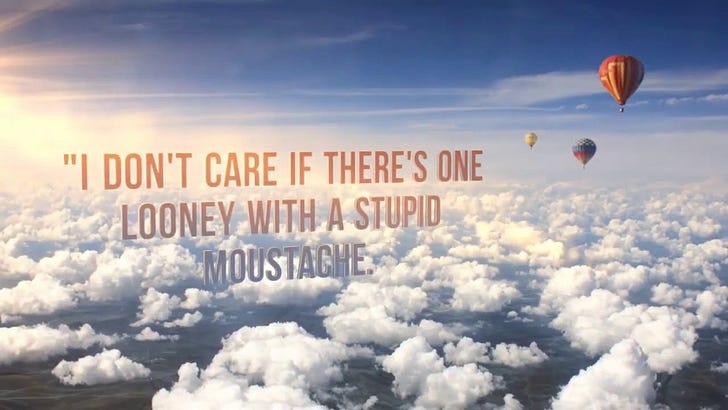




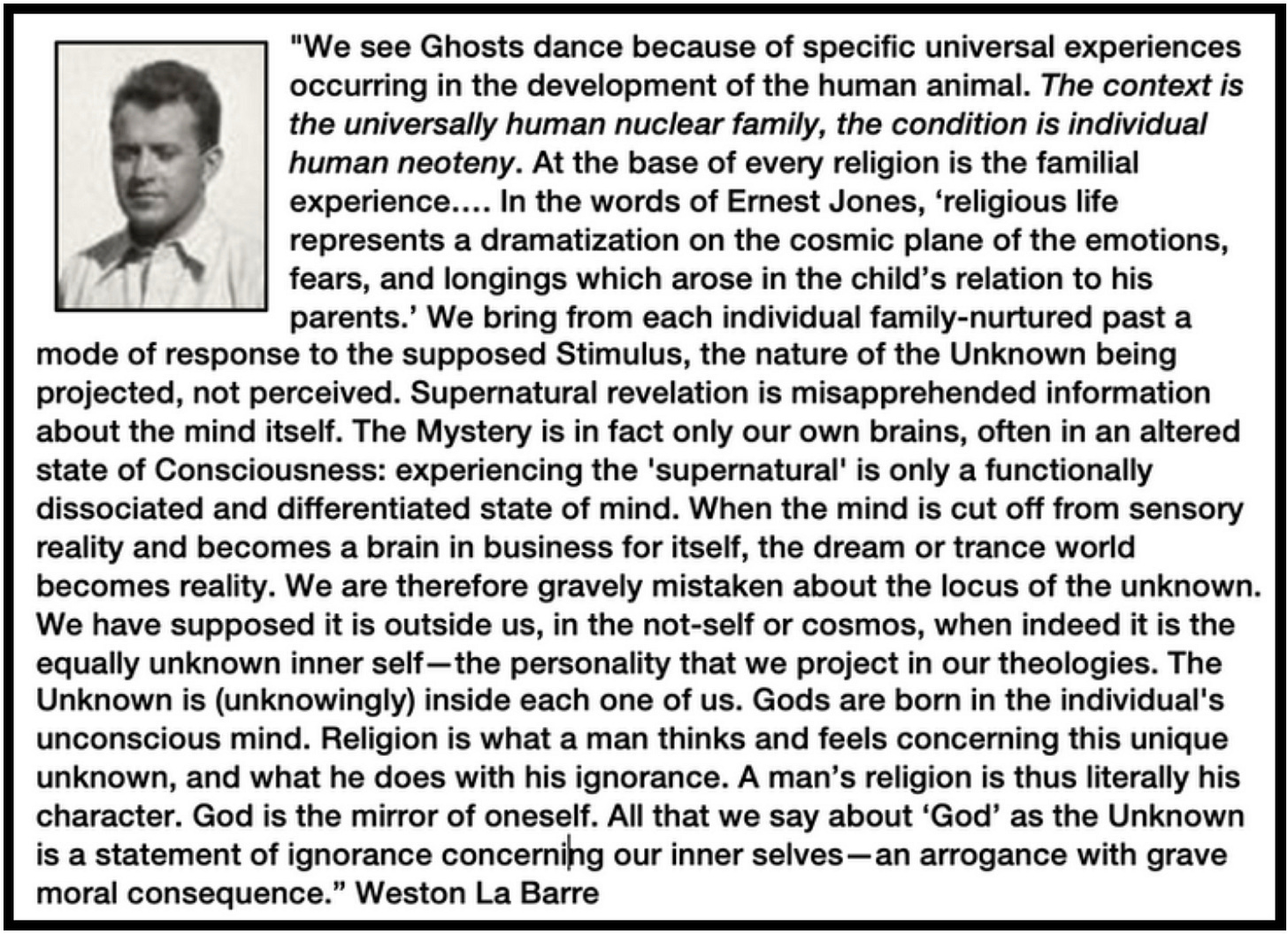
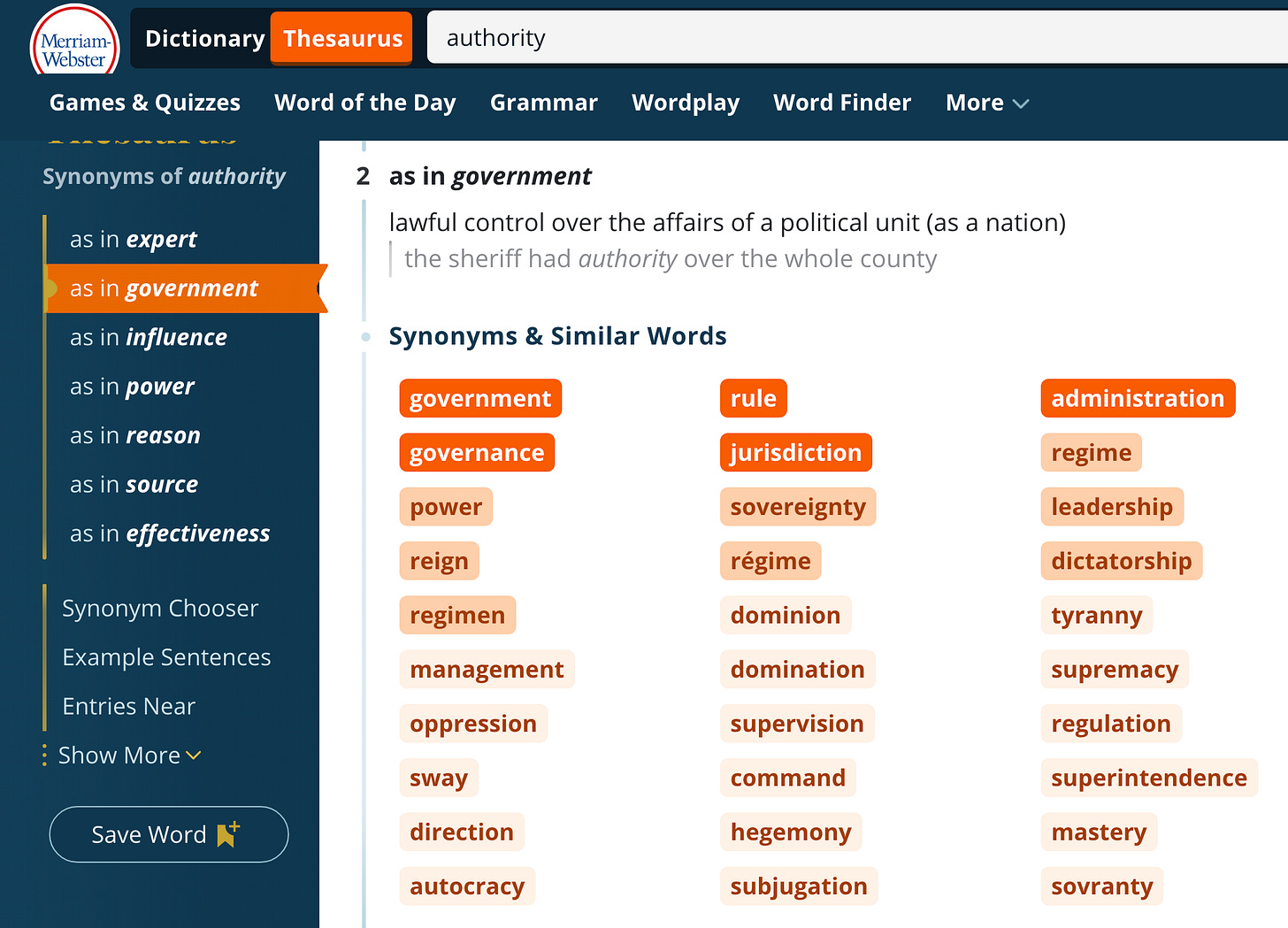


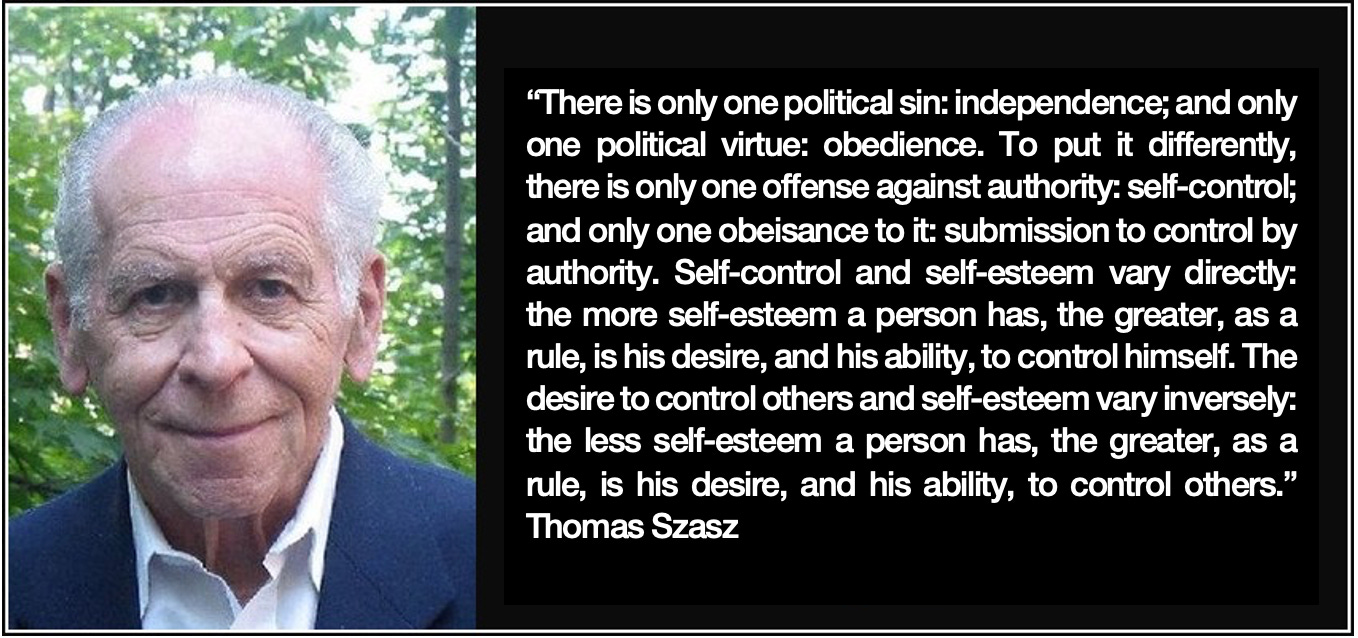

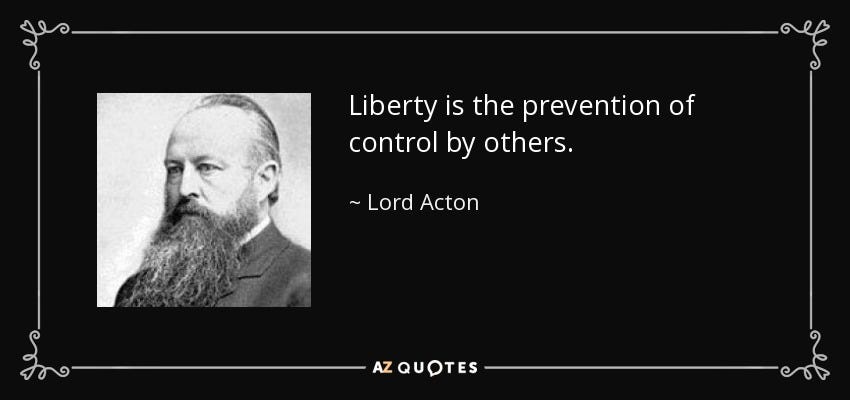

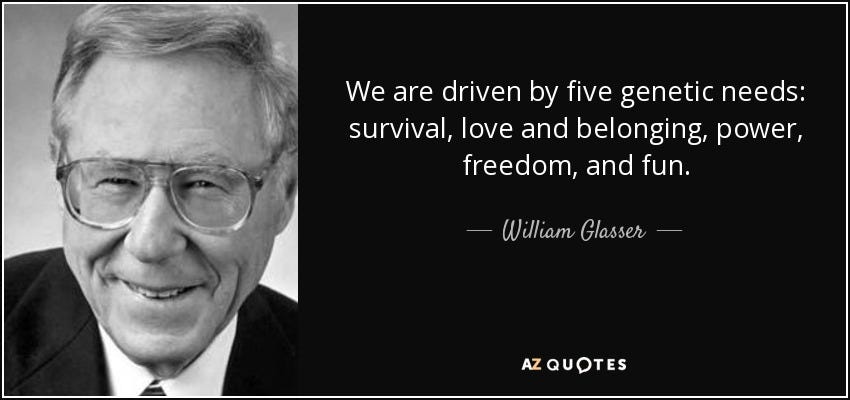



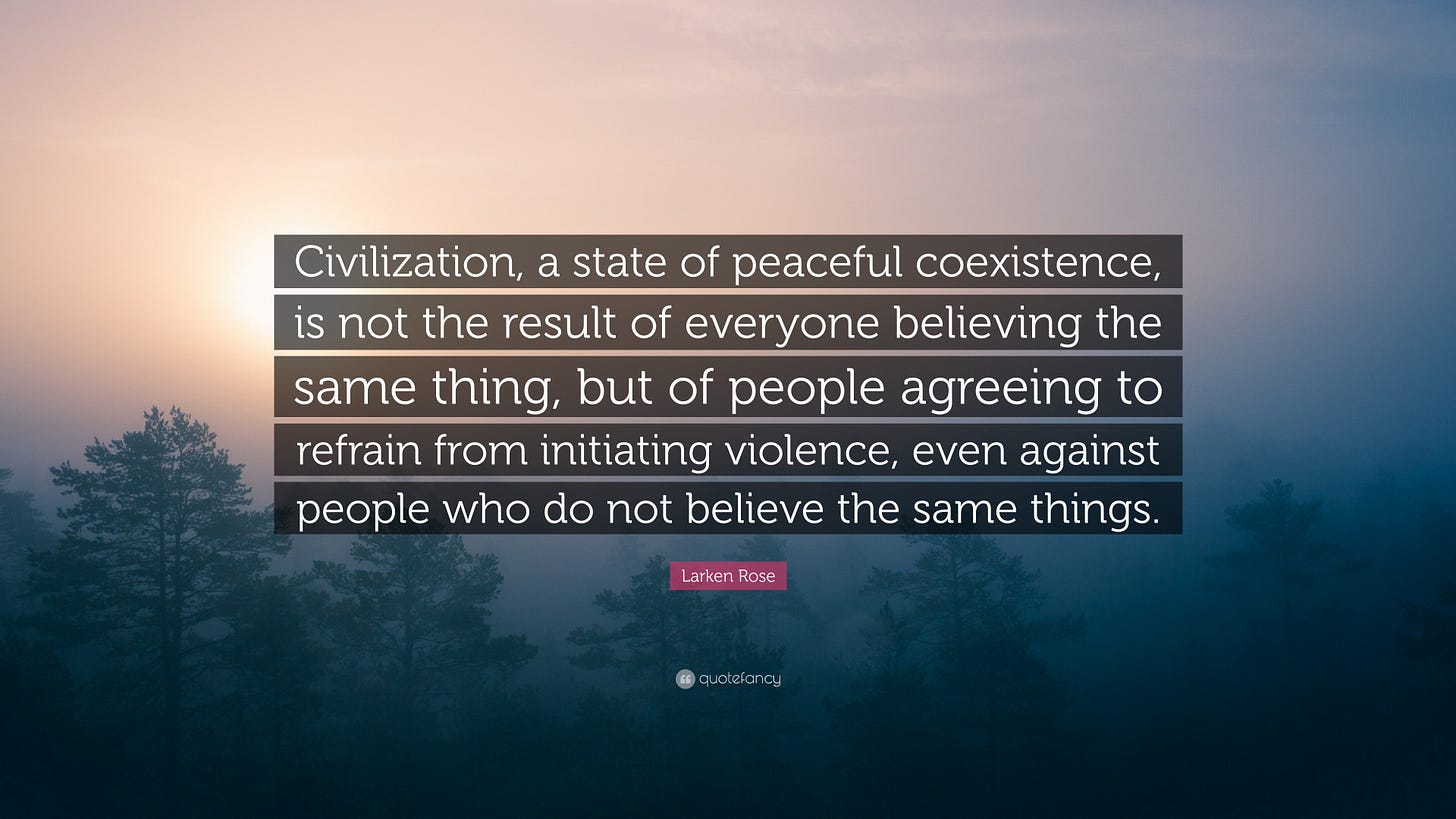







Have you heard of "God Gene"? There's a gene identified as "turned on" in people who worship authority. Have you read Robinson Crusoe? I thought the robotic* worship and service Friday gave Robby was absurd and unbelievable. I commented as much in a class. The professor assured me this was a perfectly normal reaction for a primitive.
Perhaps my never being able to see authority as gods who cannot be questioned or challenged means I was born with the God Gene turned off. You, too.
*ROBOT is Czech for HARDWORKING SLAVE.